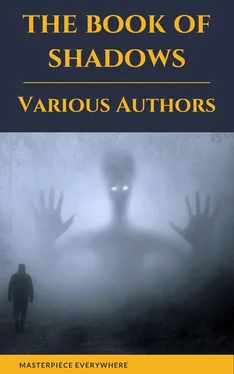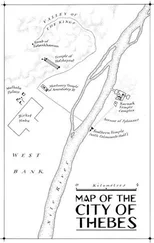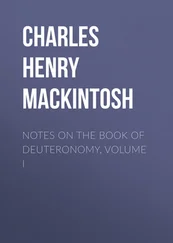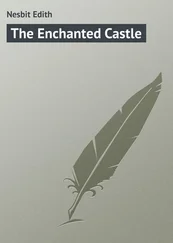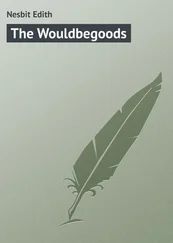Table of Contents
The Roll-Call of the Reef
The Demoiselle d’Ys
The Magic Shop
The Lost Ghost
The Violet Car
Rose Rose
The House with the Brick-Kiln
The Rocking-Horse Winner
The Hollow Man
THE ROLL-CALL
OF THE REEF
Sir Arthur Quiller-Couch
1895
“Yes, sir,” said my host the quarryman, reaching down the relics from their hook in the wall over the chimney-piece; “they’ve hung there all my time, and most of my father’s. The women won’t touch ’em; they’re afraid of the story. So here they’ll dangle, and gather dust and smoke, till another tenant comes and tosses ’em out o’ doors for rubbish. Whew! ’tis coarse weather.”
He went to the door, opened it, and stood studying the gale that beat upon his cottage-front, straight from the Manacle Reef. The rain drove past him into the kitchen, aslant like threads of gold silk in the shine of the wreckwood fire. Meanwhile by the same firelight I examined the relics on my knee. The metal of each was tarnished out of knowledge. But the trumpet was evidently an old cavalry trumpet, and the threads of its parti-coloured sling, though frayed and dusty, still hung together. Around the side-drum, beneath its cracked brown varnish, I could hardly trace a royal coat-of-arms, and a legend running – Per Mare per Terram – the motto of the Marines. Its parchment, though coloured and scented with wood-smoke, was limp and mildewed; and I began to tighten up the straps – under which the drumsticks had been loosely thrust – with the idle purpose of trying if some music might be got out of the old drum yet.
But as I turned it on my knee, I found the drum attached to the trumpet-sling by a curious barrel-shaped padlock, and paused to examine this. The body of the lock was composed of half a dozen brass rings, set accurately edge to edge; and, rubbing the brass with my thumb, I saw that each of the six had a series of letters engraved around it.
I knew the trick of it, I thought. Here was one of those word padlocks, once so common; only to be opened by getting the rings to spell a certain word, which the dealer confides to you.
My host shut and barred the door, and came back to the hearth.
“’Twas just such a wind – east by south – that brought in what you’ve got between your hands. Back in the year ’nine it was; my father has told me the tale a score o’ times. You’re twisting rounds the rings, I see. But you’ll never guess the word. Parson Kendall, he made the word, and locked down a couple o’ ghosts in their graves with it; and when his time came, he went to his own grave and took the word with him.”
“Whose ghosts, Matthew?”
“You want the story, I see, sir. My father could tell it better than I can. He was a young man in the year ’nine, unmarried at the time, and living in this very cottage just as I be. That’s how he came to get mixed up with the tale.”
He took a chair, lit a short pipe, and unfolded the story in a low musing voice, with his eyes fixed on the dancing violet flames.
• • • • •
Yes, he’d ha’ been about thirty year old in January, of the year ’nine. The storm got up in the night o’ the twenty-first o’ that month. My father was dressed and out long before daylight; he never was one to ’bide in bed, let be that the gale by this time was pretty near lifting the thatch over his head. Besides which, he’d fenced a small ’taty-patch that winter, down by Lowland Point, and he wanted to see if it stood the night’s work. He took the path across Gunner’s Meadow – where they buried most of the bodies afterwards. The wind was right in his teeth at the time, and once on the way (he’s told me this often) a great strip of ore-weed came flying through the darkness and fetched him a slap on the cheek like a cold hand. But he made shift pretty well till he got to Lowland, and then had to drop upon his hands and knees and crawl, digging his fingers every now and then into the shingle to hold on, for he declared to me that the stones, some of them as big as a man’s head, kept rolling and driving past till it seemed the whole foreshore was moving westward under him. The fence was gone, of course; not a stick left to show where it stood; so that, when first he came to the place, he thought he must have missed his bearings. My father, sir, was a very religious man; and if he reckoned the end of the world was at hand – there in the great wind and night, among the moving stones – you may believe he was certain of it when he heard a gun fired, and, with the same, saw a flame shoot up out of the darkness to windward, making a sudden fierce light in all the place about. All he could find to think or say was, “The Second Coming – The Second Coming! The Bridegroom cometh, and the wicked He will toss like a ball into a large country!” and being already upon his knees, he just bowed his head and ’bided, saying this over and over.
But by’m-by, between two squalls, he made bold to lift his head and look, and then by the light – a bluish colour ’twas – he saw all the coast clear away to Manacle Point, and off the Manacles, in the thick of the weather, a sloop-of-war with top-gallants housed, driving stern foremost towards the reef. It was she, of course, that was burning the flare. My father could see the white streak and the ports of her quite plain as she rose to it, a little outside the breakers, and he guessed easy enough that her captain had just managed to wear ship, and was trying to force her nose to the sea with the help of her small bower anchor and the scrap or two of canvas that hadn’t yet been blown out of her. But while he looked, she fell off, giving her broadside to it foot by foot, and drifting back on the breakers around Carn du and the Varses. The rocks lie so thick thereabouts, that ’twas a toss up which she struck first; at any rate, my father couldn’t tell at the time, for just then the flare died down and went out.
Well, sir, he turned then in the dark and started back for Coverack to cry the dismal tidings – though well knowing ship and crew to be past any hope; and as he turned, the wind lifted him and tossed him forward “like a ball”, as he’d been saying, and homeward along the foreshore. As you know, ’tis ugly work, even by daylight, picking your way among the stones there, and my father was prettily knocked about at first in the dark. But by this ’twas nearer seven than six o’clock, and the day spreading. By the time he reached North Corner, a man could see to read print; hows’ever, he looked neither out to sea nor towards Coverack, but headed straight for the first cottage – the same that stands above North Corner today. A man named Billy Ede lived there then, and when my father burst into the kitchen bawling, “Wreck! wreck!” he saw Billy Ede’s wife, Ann, standing there in her clogs, with a shawl over her head, and her clothes wringing wet.
“Save the chap!” says Billy Ede’s wife, Ann. “What d’ ’ee mean by crying stale fish at that rate?”
“But ’tis a wreck, I tell ’ee. I’ve a-zeed ’n!”
“Why, so ’tis,” says she, “and I’ve a-zeed ’n too; and so has everyone with an eye in his head.”
And with that she pointed straight over my father’s shoulder, and he turned; and there, close under Dolor Point, at the end of Coverack town, he saw another wreck washing, and the point black with people, like emmets, running to and fro in the morning light. While we stood staring at her, he heard a trumpet sounded on board, the notes coming in little jerks, like a bird rising against the wind; but faintly, of course, because of the distance and the gale blowing – though this had dropped a little.
“She’s a transport,” said Billy Ede’s wife, Ann, “and full of horse soldiers, fine long men. When she struck they must ha’ pitched the bosses over first to lighten the ship, for a score of dead bosses had washed in afore I left, half an hour back. An’ three or four soldiers, too – fine long corpses in white breeches and jackets of blue and gold. I held the lantern to one. Such a straight young man.”
Читать дальше
